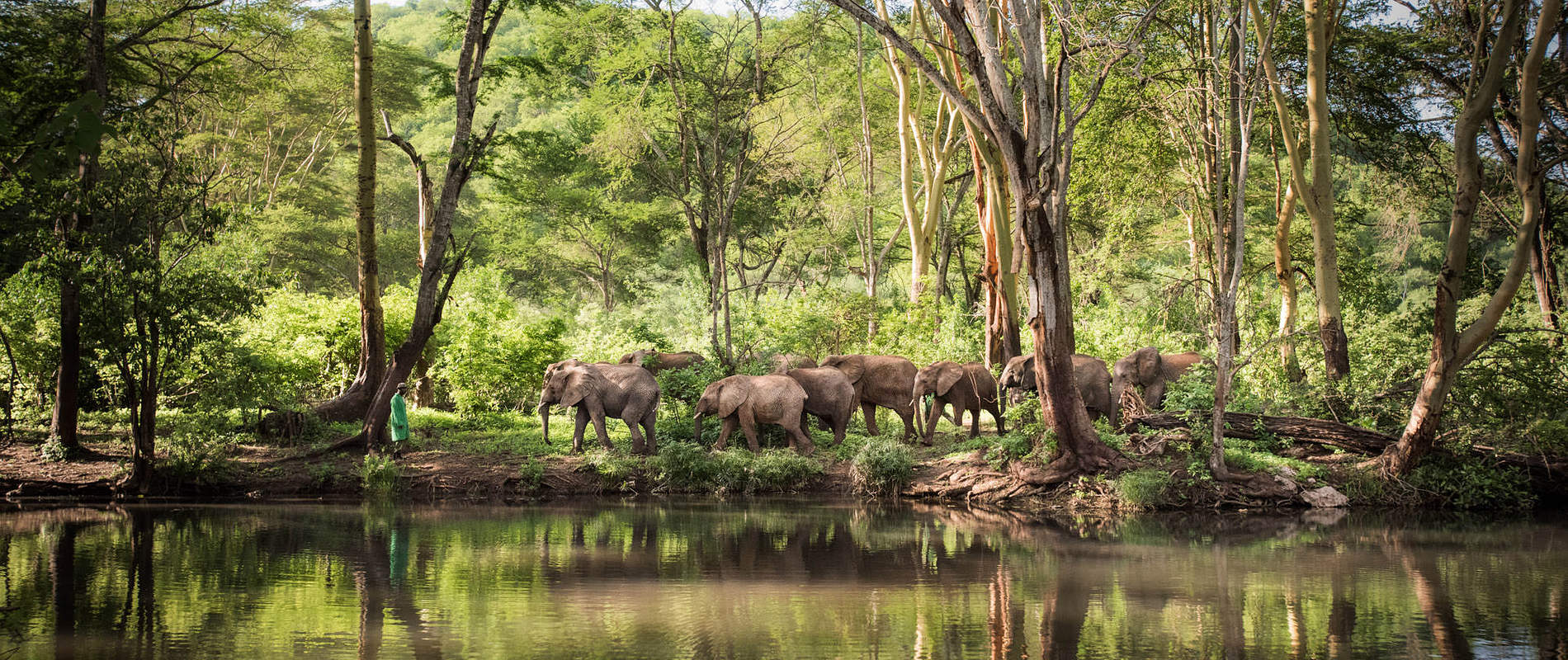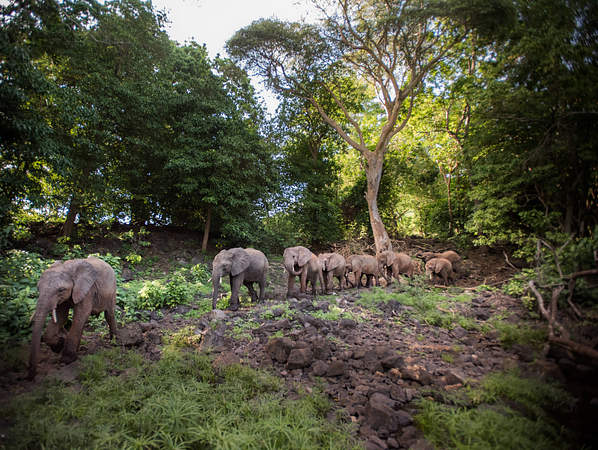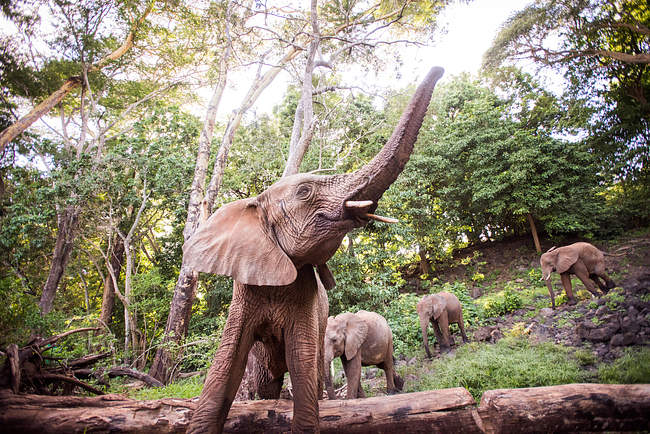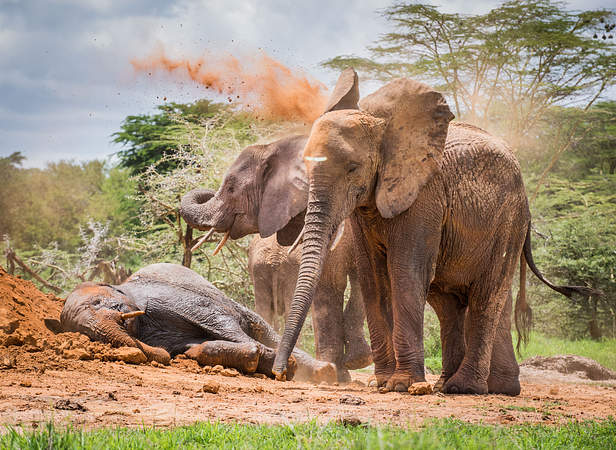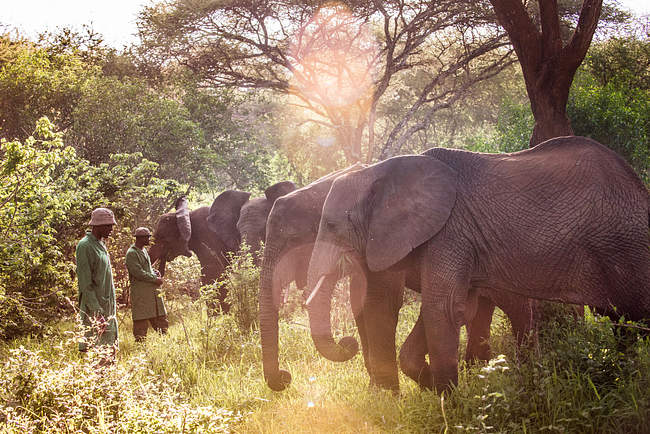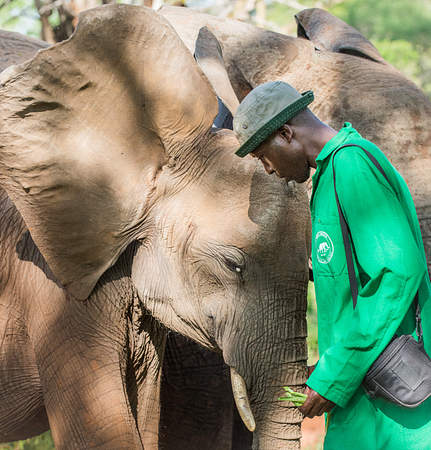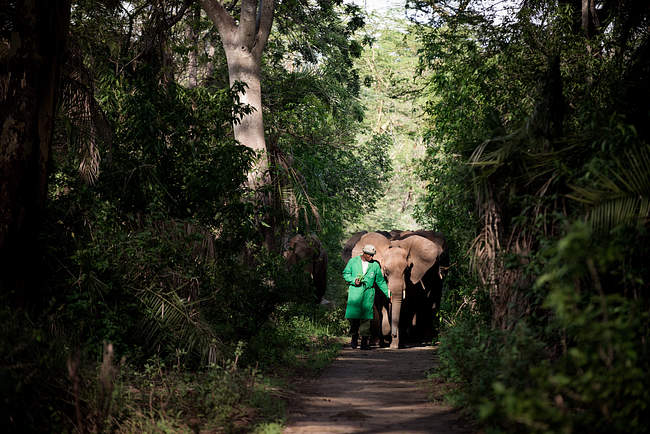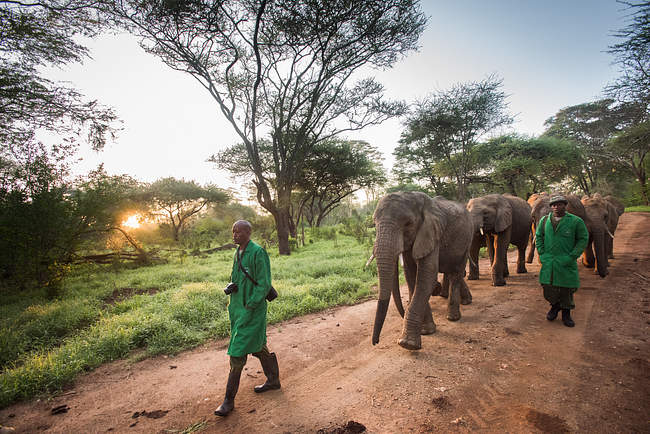The Kibwezi Forest is a green utopia year round, which is one of the many reasons we chose it as the location where our most vulnerable orphaned elephants could find their place in the wild. However, the early arrival of the rains have given the area a whole new lease of life. Butterflies burst from every blossom, the springs rush with crystal clear water, the trees hum with chirping birds and buzzing insects and peace prevails in the forest, a world away from any human interruption.
The forest is at its most magical right now, and no one is more spellbound than the elephants. The Umani Springs orphans are in a state of absolute bliss. They start their day raring to go, eager to discover all the delights the forest has in store for them. Around every corner is a fresh batch of greens to feast on or a new mud bath to splash in. They’ve always been a burly bunch — one of the benefits of having ample water and browse throughout the year — but they’re getting even stronger and more rotund with each passing day.
Encounters with the Kibwezi Forest’s other wild residents are now commonplace and Lima Lima, who the Keepers call their “GPS,” has been on high alert. She takes her scouting duties very seriously, running ahead to suss out the situation before running back to report on what she’s seen and heard. Sonje has proved to be very popular among the visiting bulls and has several handsome fellows vying for her affections. Murera, who is the matriarch of the herd, isn’t quite ready for these wild introductions and prefers to focus on coddling her baby boys, Alamaya and Mwashoti. Zongoloni, who is usually hatching some mischievous plot or other, has instead focused her efforts on keeping the gang of unruly bulls (Jasiri, Faraja, Ngasha, and Ziwa) in line.

It’s incredibly fulfilling to see how this rain-induced happiness permeates all members of the herd. Quanza, who has been very reserved ever since she witnessed poachers wiping out her family, is really coming out of her shell. She affectionately nuzzles the Keepers and seeks out their company, which shows how she is working on putting the trauma of her past behind her. Even Shukuru, who is typically one of the more sedate members of the group, has caught the bug. She has overcome her mysterious illness marvelously and has a special spring in her step. Most days now, she leads the herd and picks their route, which is a great privilege for any elephant.
As the sun sinks beneath the treetops, the second act begins. The quiet is replaced by a chorus of nighttime creatures. The distinctive sawing sound of a leopard, sitting on a distant branch in the forest, cuts across the air. Hyrax mark their territory with their shrill screams. Loudest of all are the bullfrogs, thousands croaking in unison at unearthly decibels.

For some members of the Umani Springs herd, the nighttime hours are a period of great discovery. Seven-year-old Ziwa, one of the older boys in the herd, is becoming very interested in a wild life and relishes this time. As the orphans head home for the evening, he usually darts off into the forest so he can spend the night exploring. He often brings Faraja, Jasiri, and Ngasha on these nocturnal excursions, however, they’re not fully ready to fly the nest and at first light, when the Keepers are preparing morning milk for the elephants, the group shows up outside the stockades so as not to miss out on their bottles.
We founded our Umani Springs Reintegration Center in 2014, when Murera and Sonje were ready to take their next step from the Nursery. Given the injuries that left them orphaned — Murera, a broken hip after she trod on poisoned spikes; Sonje, a shattered knee from poachers’ bullets — we knew that they needed a special place to call home. The Kibwezi Forest fits the bill. Over the intervening years, ten compromised orphans and their friends have followed, and each has found hope and healing in this protected paradise.
